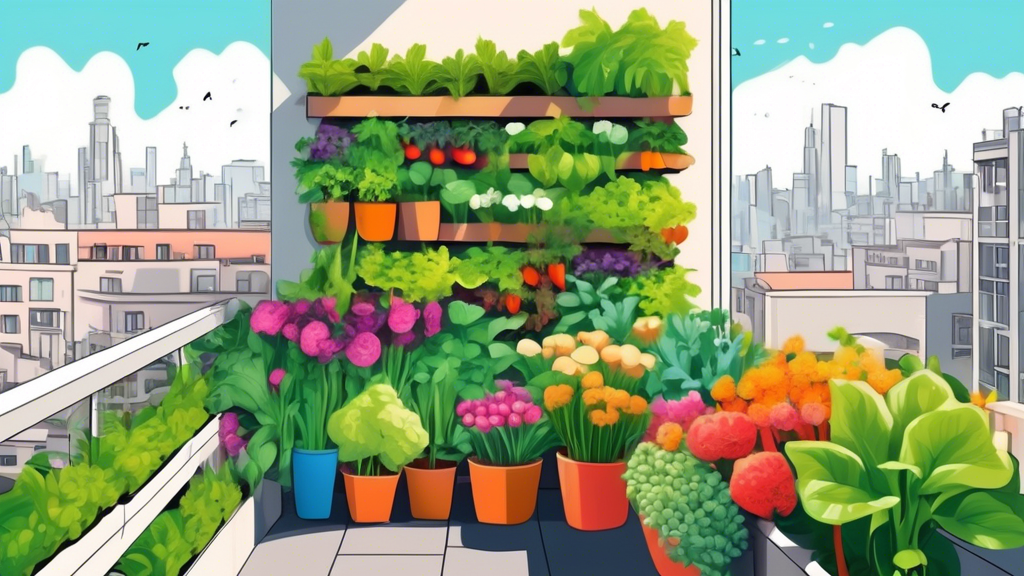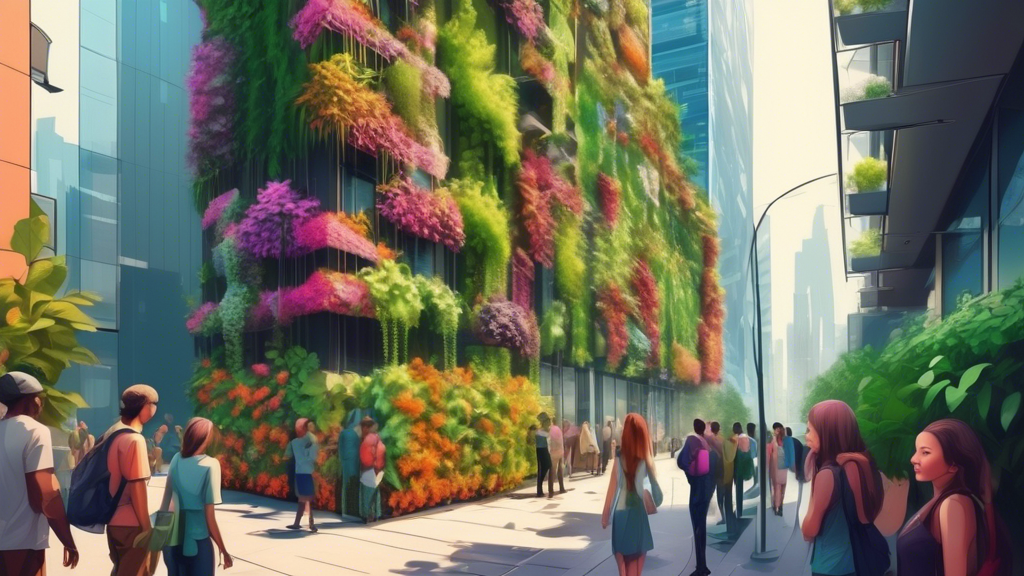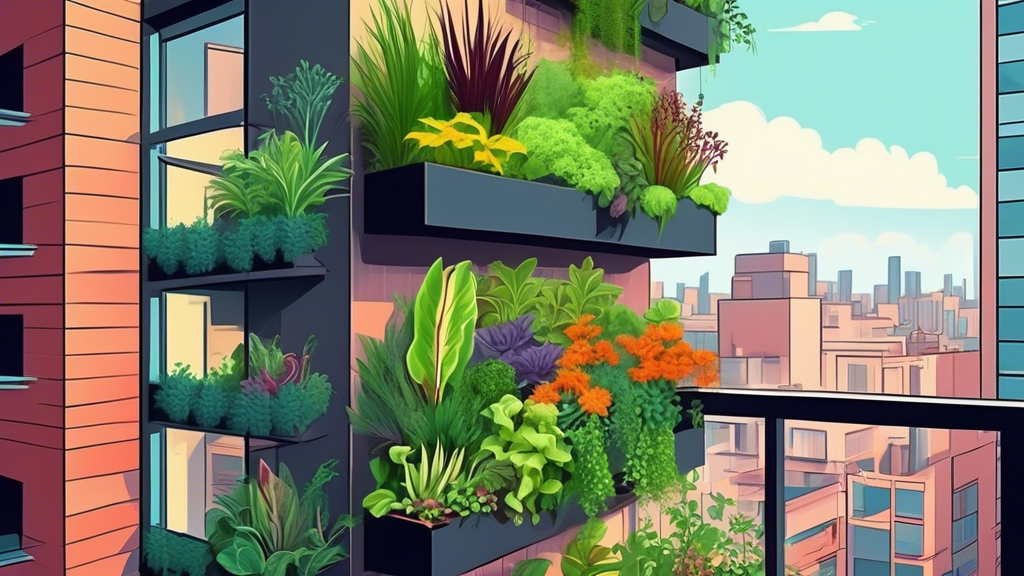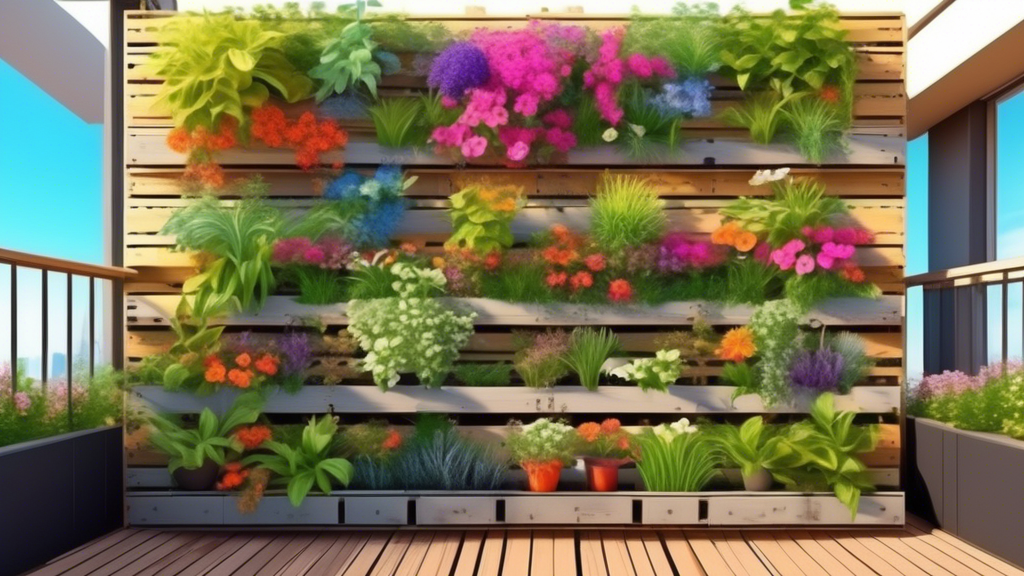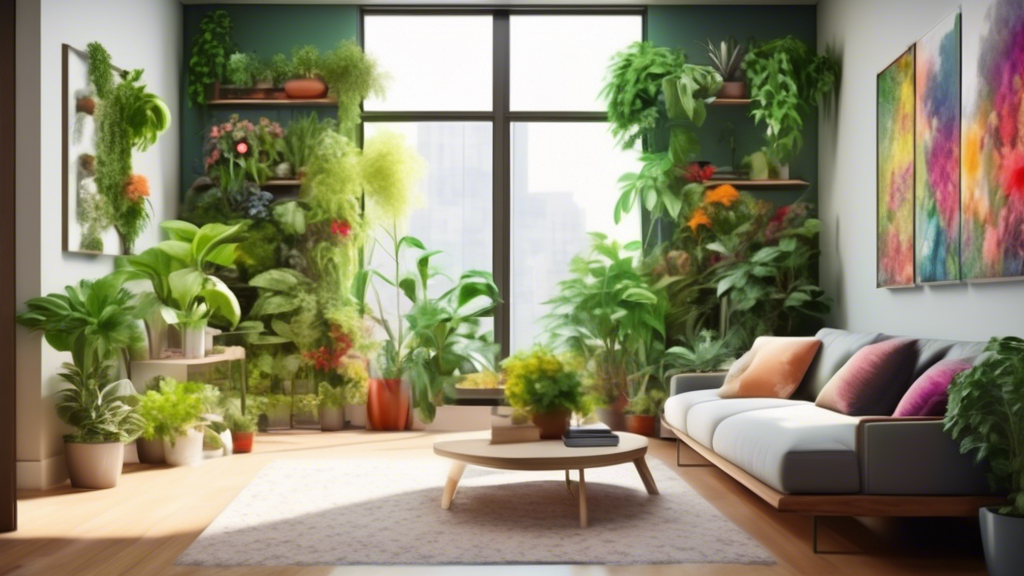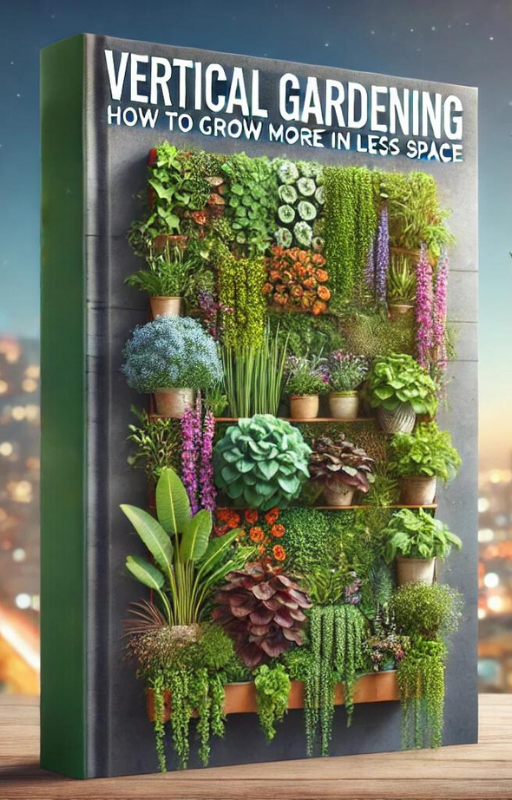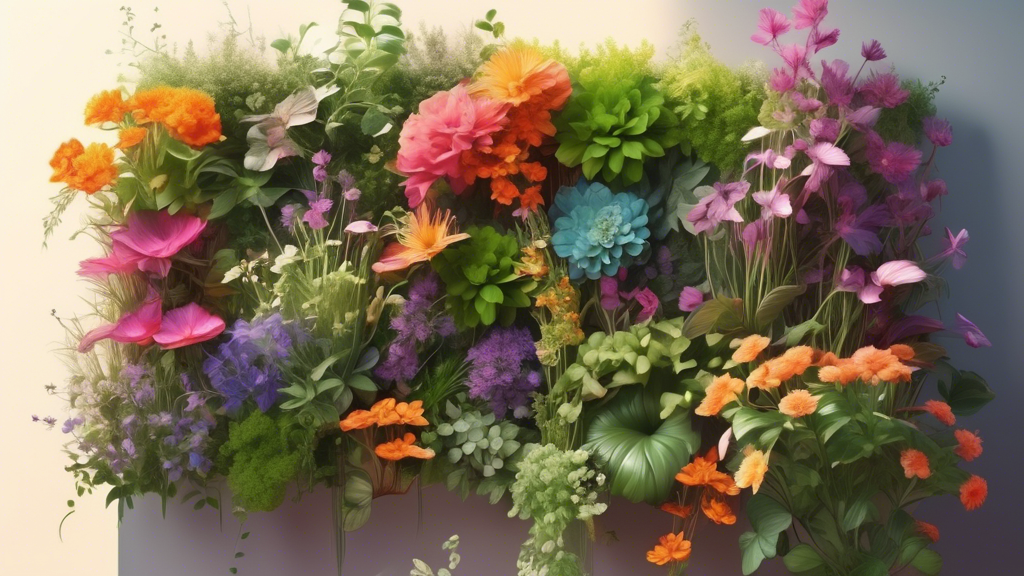
Why You Need a Vertical Garden in a Small Space
The Challenges of Small-Space Gardening
Many aspiring gardeners face significant hurdles when dealing with limited areas. The primary issues include a severe lack of usable floor space, poor sunlight access at ground level which stunts plant growth, a feeling of being cramped and disconnected from nature, and the difficulty of cultivating a diverse range of plants in a confined area.
The Benefits of Going Vertical
Vertical gardening directly counters these challenges. It maximizes every available inch on walls, fences, and railings, transforming them into productive areas. Beyond saving space, a vertical garden acts as a living air purifier, creates a stunning piece of natural art, and can even provide minor insulation and noise reduction for your home. It also makes the physical act of gardening easier by reducing the need for bending and kneeling.
Creative Vertical Garden Ideas for Your Small Space
Wall-Mounted and Hanging Systems
These solutions turn your walls into the main event.
- Living Wall Planters (Felt Pocket Systems): Perfect for creating a modern, lush tapestry of herbs and succulents.
- Modular Plastic Panel Systems: These interlocking panels can be customized to fit any space and often feature built-in irrigation for easy care.
- Repurposed Wooden Pallets: A classic DIY project for a rustic look. Always ensure pallets are untreated and safe for plants.
- Hanging Gutter Gardens: An ingenious use of standard gutters, ideal for growing shallow-rooted plants like lettuce and strawberries on a sunny wall.
Freestanding and Leaning Structures
Ideal for renters or those who prefer non-permanent solutions.
- Tiered Ladder Planters: A charming and movable structure that adds height and visual interest.
- Vertical Trellis with Hanging Pots: Offers maximum flexibility; use S-hooks to hang and rearrange pots as needed.
- Leaning Shelf Units: A simple bookshelf or a specialized plant stand can host a large collection without any tools or installation.
Upcycled and Unexpected Containers
Think outside the box for budget-friendly and unique projects.
- Mason Jar or Tin Can Herb Garden: Mount jars or cans on a board to create a functional and decorative kitchen herb station.
- Shoe Organizer Garden: A secret gardening weapon! A hanging fabric shoe organizer with pockets filled with soil is perfect for leafy greens like spinach and kale.
- Old Drawers or Crates: Mount them in a staggered pattern on a wall for a shabby-chic, multi-level planter full of character.
Choosing the Right System: A Quick Comparison
| System Type | Cost | DIY Difficulty | Best For | Watering Needs |
|---|---|---|---|---|
| Hanging Pocket Wall | $$ | Medium | Herbs, Succulents, Annuals | Frequent; can dry out quickly |
| Modular Plastic Panels | $$$ | Easy | Large, uniform green walls | Often has built-in irrigation |
| Repurposed Pallet | $ | High | Rustic aesthetic, drought-tolerant plants | Varies with soil depth |
| Freestanding Ladder | $$ | Low | Renters, movable gardens | Standard; easy to manage |
| Upcycled Containers | $ | Low to Medium | Budget projects, herbs & small veggies | Varies by container |
Pro Tips for a Thriving Vertical Garden
- The Secret to Watering: Water slowly from the top and let it trickle down. A unique tip is to place a layer of sphagnum moss or a capillary mat at the back of your planter; it acts like a wick, distributing moisture evenly and significantly reducing dry spots that are common in vertical setups.
- Don’t Forget the Weight: Wet soil is incredibly heavy. Always secure wall-mounted planters directly to wall studs or use robust masonry anchors to prevent accidents.
- Soil is Key: Never use heavy garden soil. Opt for a lightweight, high-quality potting mix that provides good aeration and drainage to prevent compaction and root rot.
- Right Plant, Right Place: Group plants with similar light and water requirements. For example, shade-loving ferns should not be planted on the same wall as sun-worshipping rosemary.
Frequently Asked Questions (FAQs)
What are the best plants for a vertical garden in a small space?
For Sunny Spots: Succulents (like Sedum and Echeveria), Herbs (Thyme, Oregano, Mint), Strawberries, and Trailing Petunias.
For Shady Spots: Ferns, Pothos, Philodendron, Begonias, and dwarf varieties of Hostas.
How do I prevent my vertical garden from leaking or dripping?
For freestanding units, always use a drip tray at the bottom. For wall systems, ensure there is a waterproof backing or liner. After watering, let the system drain completely before hanging it back on the wall.
Can I grow vegetables vertically in a small space?
Absolutely! Many vegetables thrive in vertical gardens. Excellent choices include leafy greens like lettuce and spinach, vining crops like cherry tomatoes, peas, and beans, and compact varieties of peppers.
Is a vertical garden expensive to set up?
It can be as expensive or as affordable as you make it. Starting with upcycled materials like shoe organizers or mason jars makes it a very low-cost project. You can always invest in more sophisticated, pre-made systems later on.
